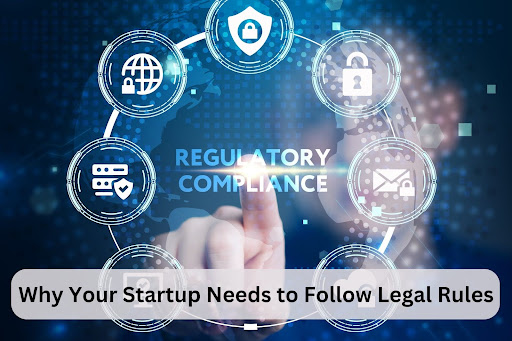Startups thrive on rapid innovation and expansion. But in all the excitement, it is vital not to overlook legal compliance—not simply as formalities but as an essential component of long-term growth and sustainability. From intellectual property protection and compliance with employment regulations to compliance with environmental legislation, understanding legal regulations is crucial in protecting startups against potential hazards while developing relationships between stakeholders.
Understanding the Basics of Business Law
Grasping the basics of business law is essential for ensuring compliance for startups. This requires understanding everything from corporate structure and licensing regulations to licensing requirements, operational disruptions, and penalties. Strict, proper compliance will reduce legal threats to zero and create a basis for future development since all actions all processes will be legitimate in terms of the existing law and standards.
Protecting Your Intellectual Property
For any business startup that wants to sustain it for some time esp,ecially in a competitive landscape, one must be able to protect intellectual property (IP). IP prevents others from using an invention, a brand name, or a literary or artistic work without permission; hence, legal measures to shield such assets as patents, trademarks, copyrights, or trade secrets would guarantee exclusive control, thus making your startup more attractive to investors and joint venture partners.
Avoiding Legal Disputes with Proper Contracts
Sound contracts are crucial to most startups so that they do not experience any hitches and losses. A properly written contract clearly lays out all terms of their business relationships, eliminating miscommunication or disagreement between partners. Thus, it eliminates costly litigation expenses and maintains professional relationships for a wholesome working relationship environment.
Navigating Employment Laws and Regulations
Compliance with employment laws and regulations is significant for startups to ensure that they are providing fair employment. This entails comprehending wages and remuneration laws, employee rights policies and procedures, and anti-discrimination provisions. Another thing that startups must get right is distinguishing between an employee and an independent contractor to avoid legal issues.
Every company must adhere to the laws governing employment and termination policy, employee welfare, and stability clause to reduce the likelihood of legal suits and create a perfect workplace for business organizations to recruit the most talented workers.
Ensuring Data Protection and Privacy Compliance
Data protection and privacy compliance for startups are integral to maintaining sensitive customer information while building customer trust. Companies must implement robust data security measures to abide by regulations like GDPR and CCPA; doing so helps avoid breaches with legal consequences for both business and customer.
Startups should create clear data privacy policies and train employees on best practices to avoid fines while cultivating an image of reliability and integrity in handling personal information. By prioritizing compliance for startups, businesses will not only avoid fines but also build up an excellent reputation for reliability in handling customer personal data responsibly.
Complying with Industry-Specific Regulations
Industry specific regulation is a component that is important in order for the startup institutions to legally and ethically function in their specified field of operation.Key steps include:
- Identifying relevant regulations: Understand the laws governing your industry.
- Implementing compliance measures: Develop policies and procedures.
- Regular audits and updates: Stay current with changing regulations.
- Training employees: Ensure all staff are aware of compliance requirements.
These steps help avoid legal issues and build trust with customers and partners.
Preparing for Legal Challenges and Disputes

Every startup company must prepare for legal aspects and issues in the organization in a bid to protect and maintain the company’s well-being. A proactive legal strategy involves crafting clear contracts, setting up dispute resolution mechanisms, and procuring legal insurance; these steps help minimize risks efficiently while mitigating conflicts quickly.
Startups must regularly review and update their legal agreements and practices to stay abreast of potential legal issues and seek timely legal advice when needed. This provides confidence for managing disputes confidently while mitigating disruptions for long-term operational success.
Long-Term Benefits of Legal Compliance
Legal compliance provides startups with long-term advantages that will aid their sustainable growth and success. Adherence to legal requirements not only prevents costly fines and legal disputes but also strengthens credibility with investors, customers, partners, and other key constituencies such as customers. Compliance helps build trustworthy business relationships, which in turn can facilitate expansion opportunities more readily. Prioritizing legal adherence enables startups to manage challenges more effectively while building resilient and trustworthy enterprises.
Conclusion
In conclusion, prioritizing legal compliance is integral for startups looking for long-term success. Adherence to legal rules protects you against potential pitfalls, increases credibility, and fosters trust with stakeholders. By understanding and applying legal requirements in areas like intellectual property protection, employment laws, and data protection regulations, startups establish solid foundations for growth and stability; adhering to compliance saves costly issues while opening up avenues of sustainable success and expansion.
Keep an eye for more news & updates on Internal Insider!










